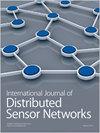改进的区块链智能合约私有数据保护方案
IF 2.5
4区 计算机科学
Q3 COMPUTER SCIENCE, INFORMATION SYSTEMS
引用次数: 0
摘要
数据安全和隐私保护是制约边缘计算发展的关键挑战。同样,由于可扩展性的限制,区块链技术在解决与边缘计算相关的安全问题方面也面临限制。为了应对这些挑战,促进区块链技术的发展,本文提出了一种利用边缘计算和主从多链架构增强区块链智能合约中隐私数据保护的方案。首先,我们在传统单链的基础上提出主从多链架构,并将其与三层边缘计算结构相结合,解决边缘侧的安全问题。我们还设计了一个集成了区块链加密技术的ECC签名认证方案。其次,将基于角色的访问控制(RBAC)模型与智能合约相结合,精细划分用户权限,构建域间基于角色的访问控制(ID-RBAC)模型,详细设计域内和域间的访问认证流程。实验结果表明,该方案能够有效抵御各种攻击,显著提高算法效率,系统开销保持在160 p以内,最大事务吞吐量接近310 tx/s。本文章由计算机程序翻译,如有差异,请以英文原文为准。
Improved Private Data Protection Scheme for Blockchain Smart Contracts
Data security and privacy protection are critical challenges that constrain the advancement of edge computing. Similarly, blockchain technology faces constraints in addressing security issues linked with edge computing due to its scalability limitations. To tackle these challenges and promote the development of blockchain technology, this paper presents a scheme that enhances privacy data protection in blockchain smart contracts using edge computing and a master-slave multichain architecture. Firstly, we propose a master-slave multichain architecture based on the traditional single chain and integrate it with a three-layer edge computing structure to address security issues on the edge side. We also design a signature authentication scheme utilizing ECC integrated with blockchain encryption technology. Secondly, we incorporate the role-based access control (RBAC) model with smart contracts to finely divide user privileges, construct an interdomain role-based access control (ID-RBAC) model, and provide detailed access authentication process designs for both within and between domains. Finally, experimental results demonstrate that our proposed scheme can effectively resist various attacks, significantly improve algorithm efficiency, and maintain a system overhead of less than 160 p, with a maximum transaction throughput of nearly 310 tx/s.
求助全文
通过发布文献求助,成功后即可免费获取论文全文。
去求助
来源期刊
CiteScore
6.50
自引率
4.30%
发文量
94
审稿时长
3.6 months
期刊介绍:
International Journal of Distributed Sensor Networks (IJDSN) is a JCR ranked, peer-reviewed, open access journal that focuses on applied research and applications of sensor networks. The goal of this journal is to provide a forum for the publication of important research contributions in developing high performance computing solutions to problems arising from the complexities of these sensor network systems. Articles highlight advances in uses of sensor network systems for solving computational tasks in manufacturing, engineering and environmental systems.

 求助内容:
求助内容: 应助结果提醒方式:
应助结果提醒方式:


